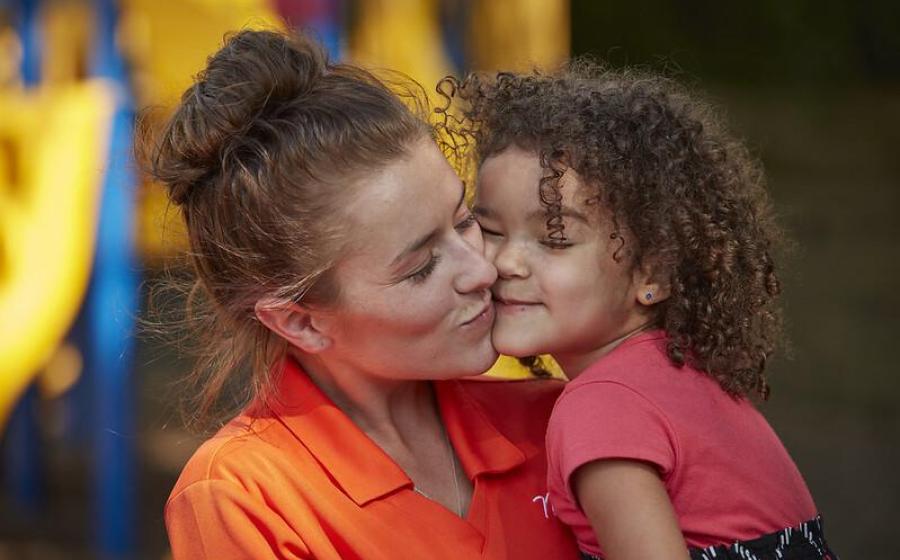Balancing Parenting: Supporting Mental Health Through Shared Routines and Redistributing the Mental Load
(NewsUSA) - Parenting is among life’s most rewarding experiences, yet it can also be one of the most mentally and emotionally taxing. From managing child care and household responsibilities to juggling work and family schedules, the pressure can quickly mount—especially when the workload is uneven.
- Parenting is among life’s most rewarding experiences, yet it can also be one of the most mentally and emotionally taxing. From managing child care and household responsibilities to juggling work and family schedules, the pressure can quickly mount—especially when the workload is uneven.
Whether in a two-parent household or navigating parenting solo, the key to protecting mental health lies in rethinking how responsibilities are managed and making space for self-care and support systems.
In homes with two caregivers, sharing duties more equitably is essential. When one parent shoulders more of the parenting or household load, stress can rise and communication can falter. Creating a more balanced routine can ease that pressure and improve overall family well-being.
Tips for better balance in two-parent households:
- Rotate and assign tasks: Alternating responsibilities like bedtime routines, school drop-offs and pickups, and errands helps prevent burnout.
- Check in weekly: A brief conversation about what’s working—and what’s not—helps keep both parents on the same page.
- Make space for personal time: Even 30 minutes of downtime each day can boost mental wellness and resilience.
For single parents, the mental load can be even greater—but small changes can make a big difference.
Tips for single-parent households:
- Create a weekly plan: A flexible but structured schedule reduces daily decision fatigue.
- Ask for help without guilt: Whether from friends or family, seeking help is a strength, not a weakness.
- Prioritize short mental breaks: Use quiet moments before or after bed or while your child is playing to reset and recharge.
Beyond personal strategies, access to external support—particularly child care—plays a crucial role in family mental health. According to the 2025 KinderCare Parent Confidence Index from KinderCare Learning Companies, consistent, high-quality child care is the number one resource parents say helps alleviate stress. In fact, 90% of parents report that quality child care gives them greater confidence as parents, highlighting its importance not only for children’s development but also for a caregiver’s mental well-being.
Despite its importance, access to child care remains a concern. The report found that 76% of parents believe companies should help cover the cost of care. These findings reflect a growing awareness that employer support for families isn’t just a perk—it’s a vital part of a healthy, productive workforce.
All families—regardless of structure—benefit from prioritizing mental health. That includes setting boundaries, saying no when needed, and recognizing that no parent can do it all. Sharing the load, planning proactively, and leaning on trusted resources like child care can ease the pressure and make space for joy.
Equity in parenting isn’t about perfection. It’s about building systems that are sustainable, fair, and supportive—so that every caregiver has the opportunity to thrive. For more information and resources, visit KinderCare.com.


 - Auto insurance costs have risen significantly over the last few years. This can be attributed to several factors, including higher repair costs associated with new vehicle technology, the potential impact of tariffs, and a growing number of incidents involving distracted driving and speeding. One of the keys to curbing the rising cost pressures is accurate data. This knowledge can assist insurers and employers in developing effective risk management strategies.
- Auto insurance costs have risen significantly over the last few years. This can be attributed to several factors, including higher repair costs associated with new vehicle technology, the potential impact of tariffs, and a growing number of incidents involving distracted driving and speeding. One of the keys to curbing the rising cost pressures is accurate data. This knowledge can assist insurers and employers in developing effective risk management strategies. - Auto insurance costs have risen significantly over the last few years. This can be attributed to several factors, including higher repair costs associated with new vehicle technology, the potential impact of tariffs, and a growing number of incidents involving distracted driving and speeding. One of the keys to curbing the rising cost pressures is accurate data. This knowledge can assist insurers and employers in developing effective risk management strategies.
- Auto insurance costs have risen significantly over the last few years. This can be attributed to several factors, including higher repair costs associated with new vehicle technology, the potential impact of tariffs, and a growing number of incidents involving distracted driving and speeding. One of the keys to curbing the rising cost pressures is accurate data. This knowledge can assist insurers and employers in developing effective risk management strategies.
 - Recent news has raised concerns about the safety of items that may be in your kitchen, including plastic utensils and nonstick cookware (commonly made with Teflon).
- Recent news has raised concerns about the safety of items that may be in your kitchen, including plastic utensils and nonstick cookware (commonly made with Teflon). - Storm seasons are getting stronger, longer, and more unpredictable. Whether it’s a thunderstorm knocking out neighborhood power lines, a tornado carving through a region, or a major hurricane threatening the coast, extreme weather can leave millions of Americans in the dark with little warning.
- Storm seasons are getting stronger, longer, and more unpredictable. Whether it’s a thunderstorm knocking out neighborhood power lines, a tornado carving through a region, or a major hurricane threatening the coast, extreme weather can leave millions of Americans in the dark with little warning.
 - Historically, athletic eyewear was mostly relegated to high-impact sports—goggles for the slopes, wraparounds and shields for cycling, or protective frames for basketball. In today’s performance-driven world, it’s no longer just about function or fashion—it’s about both. As the eyewear industry continues to evolve, optical frames are being designed with movement in mind, catering not only to elite athletes but to anyone living an active, on-the-go lifestyle. More brands, like
- Historically, athletic eyewear was mostly relegated to high-impact sports—goggles for the slopes, wraparounds and shields for cycling, or protective frames for basketball. In today’s performance-driven world, it’s no longer just about function or fashion—it’s about both. As the eyewear industry continues to evolve, optical frames are being designed with movement in mind, catering not only to elite athletes but to anyone living an active, on-the-go lifestyle. More brands, like 
 - The AI+ Expo, taking place on June 2-4 in Washington, D.C., seeks to spark discussions of ideas and initiatives related to the intersection of AI, emerging technology, and national security.
- The AI+ Expo, taking place on June 2-4 in Washington, D.C., seeks to spark discussions of ideas and initiatives related to the intersection of AI, emerging technology, and national security. - More than two-thirds of U.S. adults say they would rather file their taxes than get a colonoscopy, according to data from a new survey commissioned by the
- More than two-thirds of U.S. adults say they would rather file their taxes than get a colonoscopy, according to data from a new survey commissioned by the  -
-  “Silent Horizons" by Chad Robichaux
“Silent Horizons" by Chad Robichaux “Vested Interest” by Bailey Herrington
“Vested Interest” by Bailey Herrington “Portrait of a Feminist” by Marianna Marlowe
“Portrait of a Feminist” by Marianna Marlowe “Invaders of the Heartland” by James Bultema
“Invaders of the Heartland” by James Bultema -
-  "Retirement Planning That Delivers" by Pete Bosse, PhD, CFP
"Retirement Planning That Delivers" by Pete Bosse, PhD, CFP “The Sooner You Forget” by Christopher Bensinger
“The Sooner You Forget” by Christopher Bensinger BookTrib’s Lit Picks: First Chapters From the Hottest Books
BookTrib’s Lit Picks: First Chapters From the Hottest Books “Voices of the Civil War” by Barry Robbins
“Voices of the Civil War” by Barry Robbins